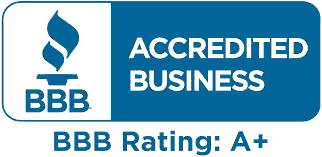What to do When Your APR Goes Up
I’ve written a great deal about credit cards over the years, from credit card security to disputing charges to what to look for in a credit card. I recently realized, though, that I haven’t said much about APRs (Annual Percentage Rates = interest rates) and what you can do when they go up. And chances are, at some point your APR will go up. Fortunately, though, credit card companies are required to notify you of an impending APR hike – which gives you some time to decide how to handle the change.
Why the Hike? Common Reasons for an APR Increase
Before we talk about what to do when your APR increases, let’s talk about why your APR might be going up.
Three very common reasons include:
- Your introductory or promotional rate is coming to an end. New account and balance transfer offers often come with an enticing zero-percent introductory APR that lasts for, say, six months or one year. After that, your rate will go up. Your new rate will be determined primarily by your credit score.
- Your credit score has taken a dive. Credit card companies keep an eye on customers’ credit activity. A lower credit score means that you’re considered a higher risk for not paying back what you owe. So if your score goes down dramatically, there’s a good chance that your APR will go up, too
- Your payment is more than 60 days overdue. If you get two months behind on your payment, your credit card company can – and probably will – hit you with a “penalty” interest rate that could be 31 percent.
These aren’t the only reasons for an APR increase. But if your rate is going up, chances are good that one of these three factors is involved.
What Next? How to Handle an APR Increase
As I mentioned earlier, companies are required to notify you of an impending APR increase. According the Credit Card Accountability Responsibility and Disclosure (CARD) Act of 2009, your credit card company is required to give you notice, in writing, 45 days in advance. Of course, they don’t have to verify that you read the notice: This is a good reason to make sure you carefully read all communications (electronic and snail-mail) that you receive from your credit card company.
The good news? This means you have about a month and a half to figure out how you want to handle the change. The not-so-good news? Your options are somewhat limited.
There are three main ways you can respond to a credit card hike:
Option 1: You can negotiate. You can always call your credit card company’s customer service number and ask them to give you a lower APR or to reverse their decision. This option isn’t likely to work, though – especially if your rate increase is the result of late payments or a lowered credit score. But it never hurts to ask.
Option 2: You can “opt out.” This is another result of the CARD Act. When you “opt out” of an APR increase, you are essentially saying that you don’t agree to the new terms of the card and you no longer want to do business with your credit card company. When you opt out of an APR increase, your account is closed and you are expected to continue making payments until your balance is paid off. You don’t have to pay any fees or penalties for taking this option.
Two notes of caution before you decide to opt out, though: First of all, any time you close a credit card, your total available credit goes down – and your available credit is a significant part of your credit score. Second, most opt-out agreements require full repayment in five years – so you may see a pretty big increase in monthly payments. I’d recommend careful consideration before you opt out and close a card.
Option 3: You can switch to a card with a better rate. If you already have more than one credit card, consider using a different card with a lower APR. Keep the one with the newly raised APR open (the more available credit, the better your credit score). To keep that card active, make a small purchase every month and pay the balance in full. If you only have one credit card, consider applying for a new one with a better APR.
Of course, nobody wants to hear that their APR is going up. But it’s not the end of the world, either — especially if you have plenty of notice and you understand your options.


 We offer FREE Debt Counseling. Get answers to lower or eliminate your debts.
We offer FREE Debt Counseling. Get answers to lower or eliminate your debts.
